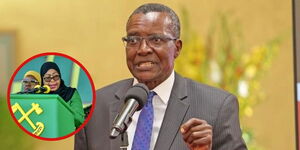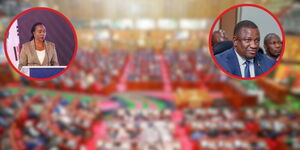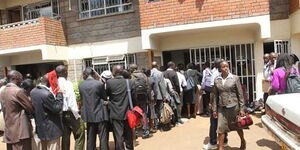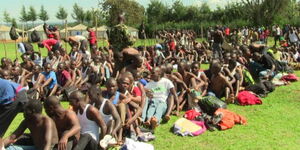Elimu Bora Working Group (EBWG), an education lobby group under the Kenya Human Rights Commission (KHRC), on Monday, January 6, issued seven demands to the government over the education sector.
In a press release, the group faulted the government over the much debated Junior Secondary School (Grade 9) transition, inadequate funding of education at basic and tertiary levels, wastage of public funds and exploitation of students and parents, and poor policy implementation in the education sector.
The group lamented the decline in the quality of education in the country and called for urgent reforms amidst the reopening of schools nationwide for the typically hectic ‘Term One.’
“The Elimu Bora Working Group is concerned that the education sector in Kenya is on a downward trend. Almost every pillar guaranteeing inclusive, free, quality public education has been destroyed,” the statement read in part.
“Of urgent concerns are the transition to Grade 9, inadequate funding of education at basic and tertiary levels, wastage of public funds and exploitation of students and parents, and poor policy implementation in the education sector,” the statement continued.
To that effect, the lobby group listed seven demands to President Ruto's administration to streamline the education sector and improve the overall quality of education countrywide.
EBWG called for the government to:
- Set up immediate support for Grade 9 students to help them prepare for senior school.
- Make free, quality education accessible to all learners, starting January 2025.
- Ensure parents and guardians do not pay tuition or admission fees.
- Stop school heads from misusing and wasting public funds in education institutions and recover the misused funds as identified by the Auditor-General.
- Quickly establish the Standards and Quality Assurance Council to uphold education standards.
- Restore integrity in exams, starting with the release of the 2024 KCSE results.
- Enable students to choose courses and enroll in schools, colleges, and universities based on merit, not their ability to pay.
On the issue of Grade 9 transition, EBWG decried the ministry’s “poor planning and ill-preparedness to manage the transition of junior secondary school students from Grade 8 to 9 in 2025.”
The group also criticised the mode of government funding, which they claimed left many Junior Secondary Schools (JSS) excluded. “Nearly five out of every six schools have been excluded, supposedly because the national government’s constituency development funds had already supported them,” they noted.
The group further highlighted the issue of the low teacher-to-school ratio, stating that this would place additional pressure on teachers to cover all subjects, thereby affecting the quality of teaching in JSS schools.
Concerning funding for education at basic and tertiary levels, the lobby group reproached the government for undermining the Constitution, which guarantees the right to education, particularly free and compulsory basic education for every child.
The group claimed that despite Constitutional provisions, many parents and guardians in public schools were still being required to pay hidden costs such as admission and tuition fees, which burden students and their families.
They added that the problem extended to Technical and Vocational Education and Training (TVET) institutions and public universities. “At higher levels, students in TVET institutions and public universities have faced arbitrary fee demands, even beyond the scope of the Higher Education Loans Board Act,” they noted.
In their statement, the EBWG raised alarm over the misuse of funds allocated for education, citing an audit report by the Auditor-General. The group observed that this misuse occurred while many students were regularly sent home due to fee arrears.
The group also condemned the government’s failure to implement education sector-related policies. They particularly criticised the lack of action on the Standards and Quality Assurance Council, which has yet to be established.
“Although courts have ordered the establishment of the Standards and Quality Assurance Council to enforce education standards and quality, this order has not been implemented. The council is intended to oversee standards in basic education institutions, administer policies and guidelines, supervise curriculum delivery, monitor assessments and examinations, and evaluate the quality of services provided by the education ministry, semi-autonomous agencies, and commissions involved in basic education,” the group affirmed.
The government has recently come under fire for the massive issues facing the education sector with various stakeholders lamenting about its inadequacy in dealing with the issues surrounding service delivery and poor planning. This is as the ministry released the KPSEA assessment results on January 6 and is preparing to release the much-awaited KCSE results.












